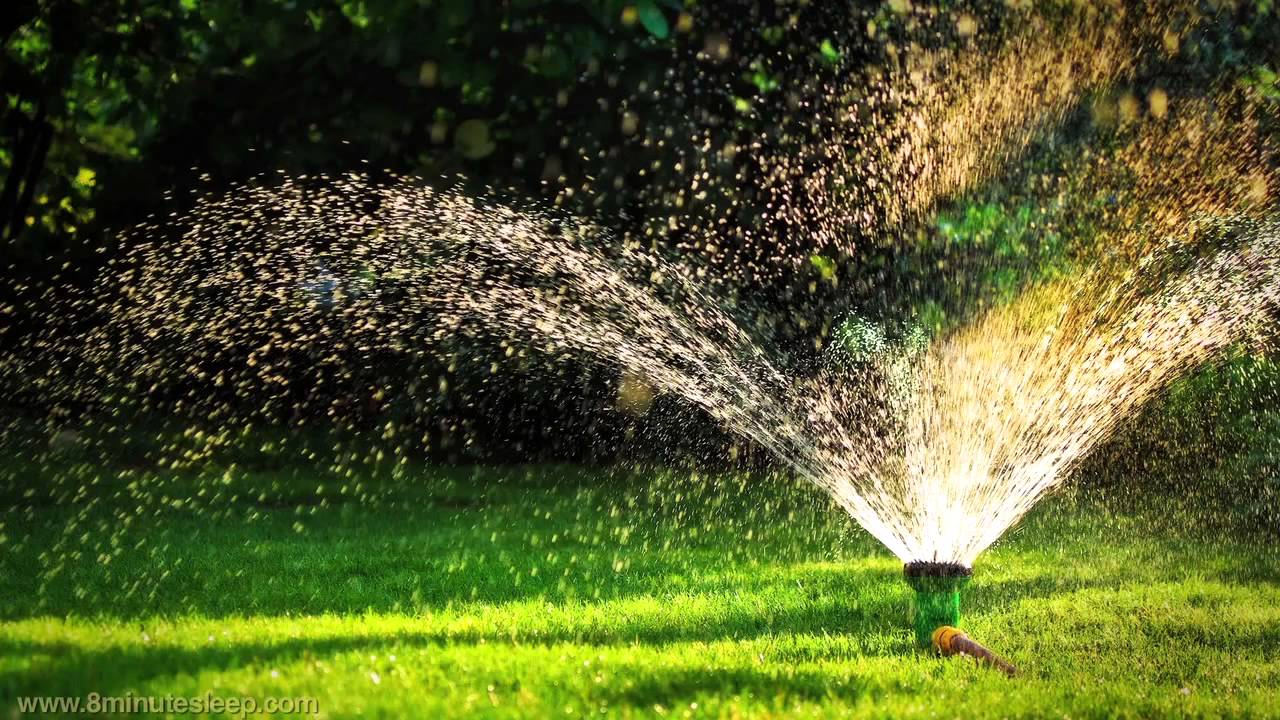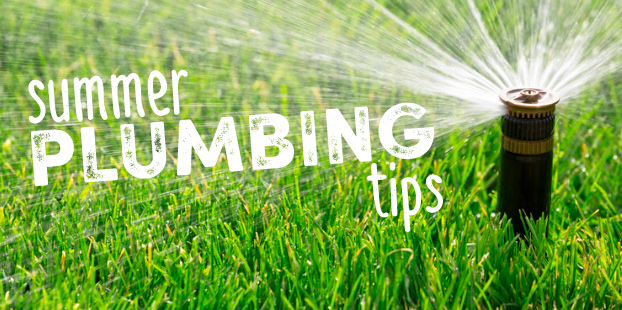Household water usage can dramatically increase during the summer months. This is primarily because the weather is warmer during the summer. Warmer weather leads to increases in your household’s water usage for a variety of reasons. Here are some Summer plumbing tips that will help you get through the season.
Lawns and gardens require higher amounts of water during the summertime because the weather is warmer and grass and plants are more likely to dry out and wither under the scorching summer sun. People with backyard pools also tend to use more water during the summer to fill and maintain their pools in order to accommodate heightened pool use during the warmer months of the year.
Many people also host more houseguests during the summer at parties, barbecues, and other gatherings that tend to be planned for the warmest months of the year. If you have children who are out of school in the summer or if you take time off of work during the summer, you and your family will likely spend more time than usual at home—which means you’ll be using more water than you normally do.
Due to common increases in residential water usage in the summertime, many renters and homeowners find themselves stuck with exorbitant water bills each month during the summer. Fortunately, there are ways you can limit your water usage during the summer months.
Keep reading to learn 5 summer plumbing tips that can help you decrease the amount of water your household uses during the summer and lower your monthly summertime water bills.
1. Test Your Sprinkler System
Most people use their sprinkler system more heavily during the summertime when the weather is warm and lawns and plants are more likely to dry out and wither. If you have a sprinkler system in your back or front yard—or both—inspect and test it to make sure it is working properly before summer arrives. A malfunctioning sprinkler system can waste a significant amount of water.

Summer Plumbing Tip: check sprinklers
The next time your sprinklers are on, go outside and take a look at them. Inspect each sprinkler head to make sure none of them are leaking, spraying too forcefully, or facing the wrong way. If your sprinkler system is on a timer, you should also make sure that your sprinklers turn on at the right time and all turn off when their run time is up.
2. Watch Out For Leaks
Leaks are a common plumbing problem that can have a significant impact on your monthly water bill. They can also sometimes be very difficult to detect. Watching out for leaks in your home can help you detect any potential leaks and get them fixed as soon as possible.
Common signs of leaks in your home plumbing system include reduced water pressure; mold and mildew on your ceiling or walls; peeling paint; cracks in the ceiling or walls; and abnormal noises when sinks, showers, dishwashers, and other water-dependent appliances are in use.
3. Don’t Put Off Repairs
When you notice any plumbing problem in your home—even if it is an extremely minor issue—don’t put off repairing it. Even a plumbing problem as minor as a running toilet or a barely leaking faucet can waste tons of water and make a significant impact on your monthly water bill.
If you notice any abnormalities in your home plumbing system—no matter how minor and insignificant they might seem to you—call a professional plumber and get these issues repaired as soon as possible. Addressing plumbing issues quickly can help you save on your monthly water bill and prevent water waste.
4. Adjust Your Water Heater Temperature
Summer is the most popular time of the year to go on vacation. If you’re leaving town for a weekend getaway or a longer trip, turn down the temperature of your water heater before you leave. You won’t miss the extra heat while you’re gone, and you can easily turn the water heater back to its standard temperature after you return from your trip.
Turning down the temperature of your water heater before leaving home for more than a day is very easy and takes barely any time at all, but it can make a significant difference in your water bill. Turning down your hot water heater by 20 degrees can save you up to ten percent on your hot water heating costs.
5. Limit Your Water Usage
There are many simple ways to limit the amount of water you use in your home—without making any major sacrifices or significant changes to your daily routine.
Turn the faucet off while you are brushing your teeth or scrubbing dishes. Set a timer for 5 to 10 minutes and try to shower within that time frame. Make a point to take baths instead of showers when you can—filling a bathtub requires less water than continuously running a shower. Run your dishwasher only when it is full to decrease the number of loads you run per week.
Saving water to decrease your monthly water bill during the summertime is easy by developing these simple habits that can fit effortlessly into your daily routine. And as always, if you get caught with an unforeseen plumbing issue, contact us right away!


